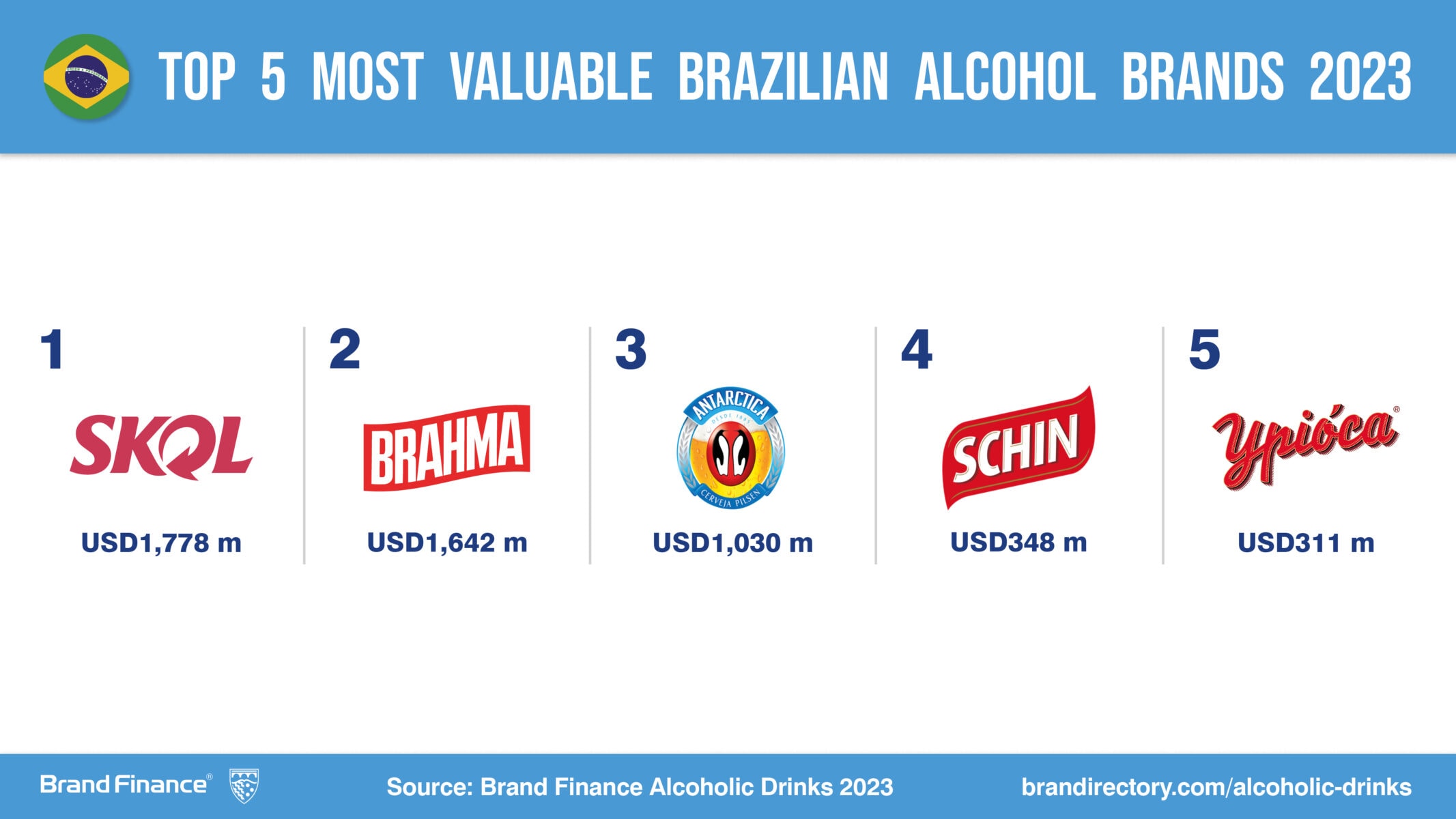Brazil has a rich history of alcohol consumption and production, with beer and cachaça being the most popular beverages. However, our country’s restrictions on alcohol-related public communications can pose challenges for building strong brands and effective communication channels. Nonetheless, the alcoholic drinks market in Brazil is poised for growth in the coming years, in part thanks to factors such as a growing population and rising disposable incomes.
In the global ranking, Brazil’s beer and cachaça segments stand out. Leading brands include Skol, Brahma, Antarctica, Schin, and Ypióca. Notably, three out of the five brands mentioned are part of parent company AB InBev, the former Ambev brewery. Ambev, also known as Companhia de Bebidas das Américas originated in Brazil and is now one of the world’s largest beverage companies, solidifying its position as a dominant player in the Brazilian beer market.
Schin, the only non-Ambev beer brand included in the ranking, belongs to the former manufacturer Brasil Kirin, which was controlled by the Japanese group Kirin Holdings Company. Today, Schin is part of the product portfolio of Heineken.
In Brazil, the beer and cachaça markets are moving in different directions. The Brazilian beer market has experienced limited growth, or may even be considered to have declined, since 2016 as observed in more recent years.
On the other hand, the cachaça has untapped potential and has been growing steadily year-on-year. Currently, most cachaça producers operate informally, and there is a culture in Brazil of manufacturing these brands in stills in rural locations scattered across the country. There are further geographical indications that play a role in certifying the origin of cachaça, such as cachaça from the Micro Region of Abaíra, Paraty, and Salinas Region.
Looking at Brazil’s wine industry, we can also see growth as production has increased significantly in recent years. In terms of commercial spirits, these brands also appear to have improved market share, with notable emphasis on Ypióca cachaça, produced in Brazil by alcoholic beverage giant Diageo.


